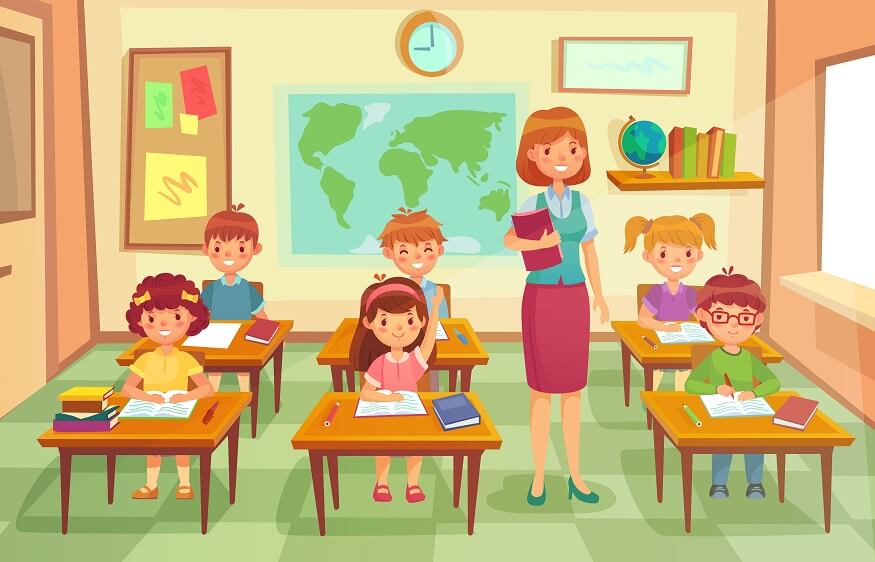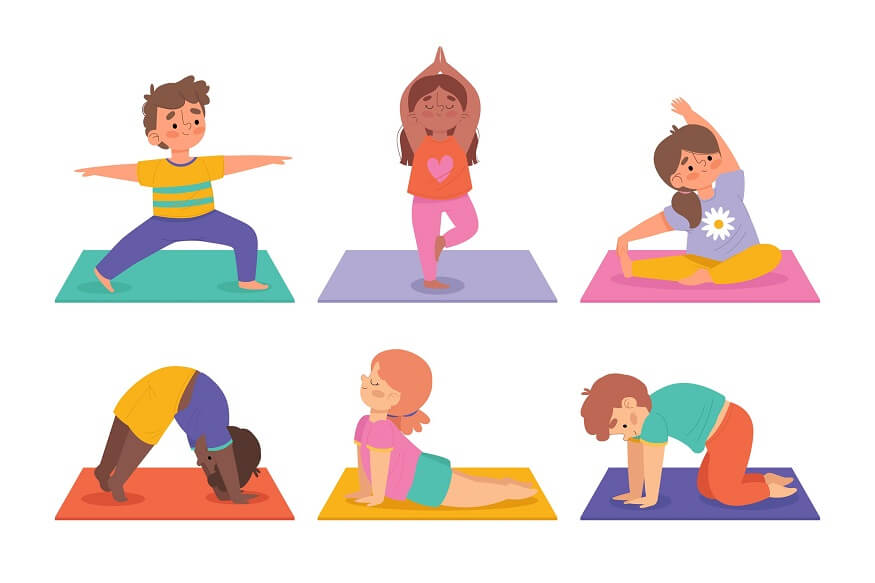The Indian school education system broadly comprises the following stages
Pre-Primary Stage
- Typical Age group – 3 to 6 years
- Levels of Classes – Pre-Nursery, Nursery, KG, LKG and UKG
Primary Stage
- Typical Age group – 6 to 11 years
- Levels of Classes – Classes 1st to 5th
Middle Stage
- Typical Age group – 11 to 14 years
- Levels of Classes – Classes 5th to 8th
Secondary Stage
- Typical Age group – 14 to 16 years
- Levels of Classes – Classes 8th to 10th
Senior Secondary Stage
- Typical Age group – 16 to 18 years
- Levels of Classes – Classes 11th to 12th
In this blog, we will consider Primary Education as consisting of Pre-Primary, Primary, and Middle stages of education. This means the education a child receives till class 8th, or typically from the age of 3 years to 14 years.
Importance of Primary education
Primary school education focuses on primary skills which are essential for any human being to function well in society. As a result, the government schools in most states offer primary school education free of cost to children. Additionally, there is a huge prevalence of private schools offering primary education to children.
The primary education phase is the most formative years of a child’s growth and development. It is the first exposure of children to formal education which lays the foundation of a child’s journey towards lifelong learning and equips children between the age group of 6-11, with the primary skills necessary for any child’s holistic development. This development includes the development of the child’s mind (cognitive skills), body (motor skills), and emotional and social skills.
Amongst the many benefits, one of the main benefits of primary education is that during the primary education phase, kids of 3 to 6 years of age are exposed to activities and games which engage their sensory, cognitive, and motor skills – to create a sound combination of mind, body, and soul. This phase typically employs the following to achieve the primary objective of education:
- Extensive usage of games and toys
- Physical activities – sports & games
- Spiritual activities such as Yoga
- Creative activities involving arts & music
- Phonic-based activities to enhance language skills
- Number and mathematics-based games and puzzles
- Science-based activities and games
One of the other benefits of primary education is that once the primary senses are enabled and sharpened through the early stages of primary education, children are ready to immerse themselves in the world around them. Children are exposed to the ways and functioning of the world around them and as a result, one of the key objectives of late primary school education is to provide kids with a balanced exposure to the world and society they are living in. The purpose of this phase of primary education is to expose children to various facets of life, society, environment and nature.
The importance of primary education is evident in the wide variety of subjects taught such as:
- Languages – Reading and writing in English, Hindi, and other local languages
- Social Studies (History, Geography, Political Science or Civics)
- Mathematics
- Science
- Environmental Science
- Creative Arts
- Personal Development
- Health and Physical Education
Language is essential to our human existence. Good command of language skills, spoken or written, is a key determinant of our success as social animals. With this objective, language skills are the area of focus right through primary and even secondary education. The primary education part of language focuses on the basics, starting from the alphabet, letters, words, formation of sentences, and comprehension. Early primary education teaches children to identify objects with their names in English and other native languages. They learn to write and verbalise words and sentences. The development of these vital language skills prepares them to engage with others in society.
Mathematics and Sciences engage the key cognitive skills of the children along with helping answer a lot of their curiosities regarding how things work. Mathematics introduces the problem-solving approach which engages the cognitive skills of critical and analytical thinking among children. Science teaches them about the formation and functioning of our physical and natural world. It helps them figure out answers to their curious questions such as How human beings, plants, and animals function, and how day and night, months, and seasons pan out.
Young children need to understand the construct of their environment, their culture, their roots, their rights, and their duties as a citizen of a country and as a member of this society. These objectives are served by social studies subjects that involve History, Geography, and Civics. History helps children understand how we evolved as a civilization, who were our ancestors, and how our society and culture came to be what it is today. It helps bring a lot of perspective to things children see around them and wonder how they came about. Geography helps children understand the physical structure of our earth and the atmosphere that we live in. It helps kids get a bird’s eye view of the earth, various countries, rivers, oceans, and continents, layers of atmosphere and how they all come together to engage with us as a civilization. We want our children to develop as good samaritans and ideal citizens. To achieve that, children need to understand what their rights and duties are as a citizen of this country and as a member of this society on earth. Subjects such as political sciences and civics help children formulate a civic framework early in their stages of development.
Towards the later stages of primary school education, our education system starts exposing them to a wide variety of vocational fields. This phase helps children explore and experiment with various options and form opinions on what could be the field of the profession they might want to engage in with a higher degree of possibility of success. To achieve this objective, skill-based subjects are offered by the department of skill education for students in classes 6th to 8th:
- Artificial Intelligence
- Beauty & Wellness
- Design Thinking
- Financial Literacy
- Handicrafts
- Information Technology
- Marketing/ Commercial Application
- Mass Media
- Travel & Tourism
Primary education is a critical phase in the development of a child. It is a formative exploratory stage which prepares the child for the narrowing of choices and alternatives during the secondary education phase.
EuroSchool forms a strong combination of primary education seamlessly transitioning into secondary education. For us, the objective of education is to be able to provide a best-in-class curriculum, world-class infrastructure and highly trained staff who ensure our students receive the best formative primary education during their early stages of development. A balanced combination of the development of mind, body, and soul.











